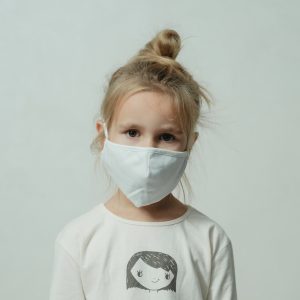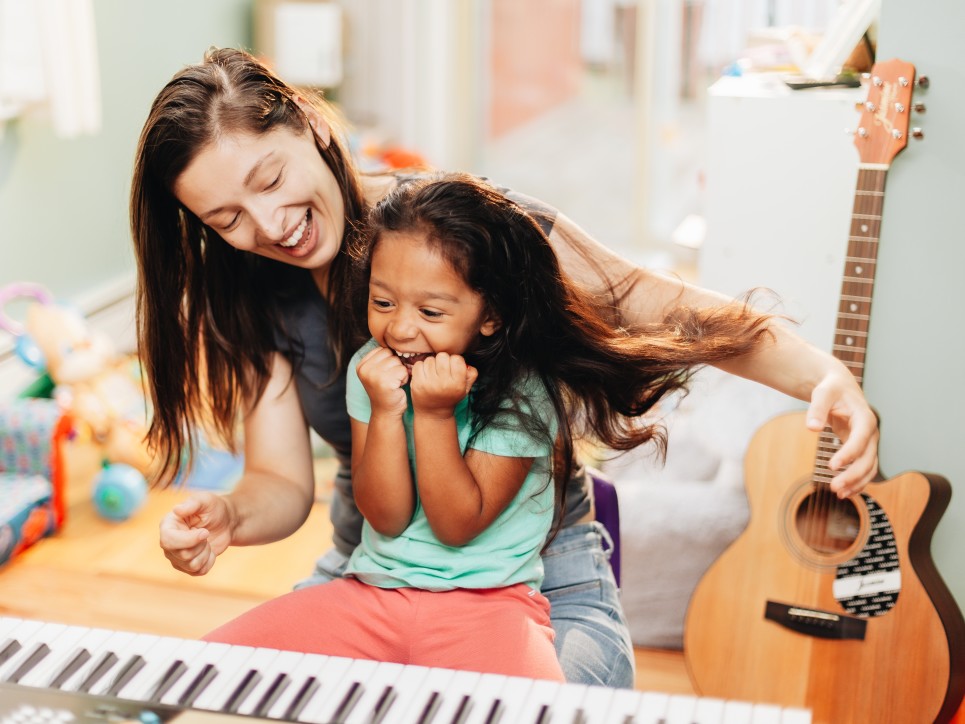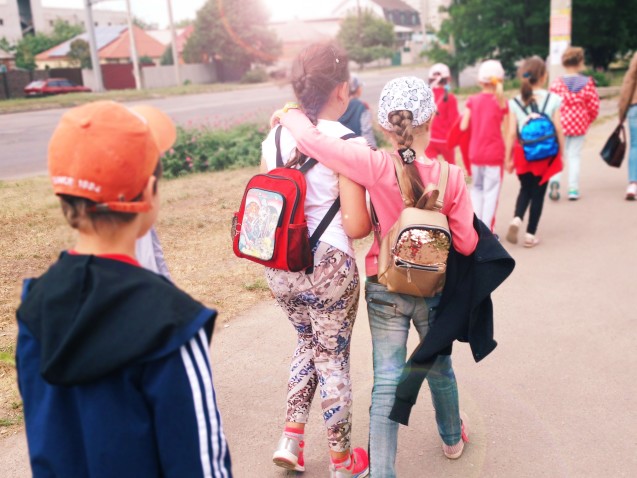Do Masks in School Affect Kids’ Speech and Social Skills?
 Some parents express worry that masks might interfere with children’s ability to learn or to socialize. Other parents fear that unmasking will lead to more COVID-19 cases.
Some parents express worry that masks might interfere with children’s ability to learn or to socialize. Other parents fear that unmasking will lead to more COVID-19 cases.
Amid the debate, a small but growing body of research is offering hints that masks do not have a significant impact on speech or social skills.
Lindsay Yazzolino, an accessible-technology consultant, has been blind since birth. But she went to school with sighted kids.
“I always had a really great experience in school,” she says. “I had a lot of really supportive teachers, I was reading at an early age. I loved math and science.”
She relied on braille to read and write. And it was hard for her to get some course materials in that format. But social interactions were never a problem, she says.
“You hear emotion in people’s voices, so I definitely used that as a cue,” she says. “And I talk to people.”
The brain finds a way
Yazzolino’s experience is unsurprising, scientists say, because the human brain is really good at finding a way to communicate.
“We tend to underestimate how flexible our mind and our brain is,” says Marina Bedny, an associate professor at Johns Hopkins University who studies brain development in people who are blind.
“We’ve also found that people who are blind have some superior abilities at understanding spoken sentences,” she says, “perhaps because language is such an important source of information.”
This sort of research suggests that when sighted children encounter masks in the classroom, their brains adapt quickly.
Studies show that children tend to watch mouths and faces closely when learning to speak and read emotions. But it’s less clear what happens when these visual cues aren’t available in the classroom.
Masks in class may encourage more speech
At least one unpublished study has found that pandemic masking isn’t an obstacle to learning, even for children as young as 3 or 4.
“We’re seeing really similar amounts of talking, really similar amounts of vocabulary development, language growth, language development, with or without masks, says Lynn Perry, an associate professor in the psychology department at the University of Miami.
Perry is part of a team that has been monitoring speech development in pre-school students since before COVID-19 arrived. The students wear a device that monitors the language sounds they produce.
In different contexts, masks pose different challenges
Masks do pose a challenge for deaf or hard-of-hearing students who aren’t already fluent in American Sign Language or ASL, says Tyrone Giordano of the Clerc Center at Gallaudet University. The center offers elementary and secondary schools for children who are deaf or use hearing aids or cochlear implants.
Facial expressions and mouth movements are an integral part of signing, and masks covering up the face means the brain needs to work harder to process what is being said, especially for those who are acquiring ASL, says Giordano, who is deaf.
Despite reassuring reports, the long-term impact of masking in schools remains unclear, says Stephen Camarata, a professor of speech and hearing sciences at Vanderbilt University.
“This idea of doing selective access to faces is really not a well-researched topic at this point, he says.
Camarata thinks most children won’t have any long-term effects from masks in classrooms. But he’s concerned about some students with autism who have difficulty adapting to even small changes in their environment.
Excerpted from “Do Masks in School Affect Kids’ Speech and Social Skills?” from NPR. Read the full article online.
Listen to a short podcast of this article:
Source: NPR | Do Masks in School Affect Kids’ Speech and Social Skills?, https://www.npr.org/sections/health-shots/2022/03/15/1086537324/schools-masks-kids-learning-speech-development | © 2022 npr
If you have concerns about your child or teen, CHC Care Coordinators can arrange a free 30-minute consultation so you can explore options with an expert. We invite you to call or email us at 650.688.3625 or careteam@chconline.org to set up an initial Parent Consultation appointment. CHC teletherapy services are available now.





